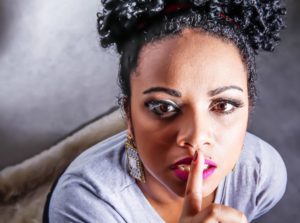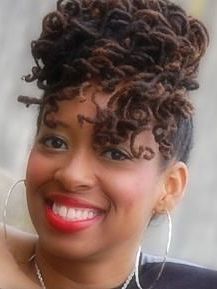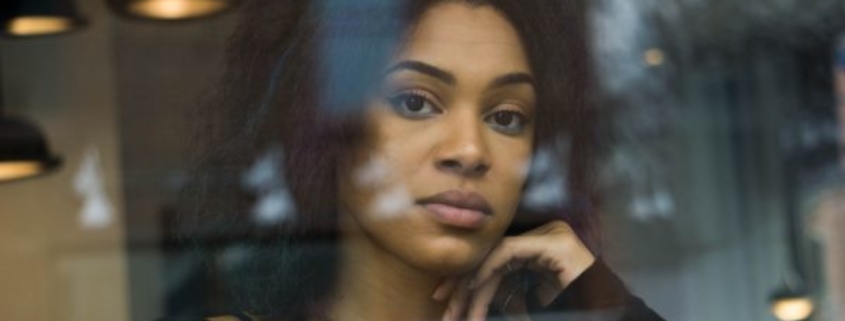Loving Women
For most of my life, I’ve had issues with women. But it grew worse in college when I became a victim of sexual assault. When I think about that night, I am not angry at the boy who took advantage of me. I’ve forgiven him. I don’t even remember his name. When I woke up, ashamed, and laying next to a person I hadn’t been sober enough to give permission to, I felt betrayed. I’d been drinking with friends that night, friends who should have protected me. Not only had they not, but when I came to and lumbered down the stairs, it was my friend, a girl who was there the whole time—completely sober and aware, who told me in my confused and dizzy state, to go back upstairs. She sent me back to the man who’d just violated me.
I recently realized that I’ve projected the betrayal I felt as I sat on the stairs outside that bedroom onto every relationship I’ve had with women since that night. I suspect them of hurting so bad themselves that they won’t feel peace until they send me back to my own violation. I suspect it when they remind me that I am a single mother, never married. I suspect it when they remind me that I’m not yet published. I suspect it when they warn me not to dream too big and advise me to stay in my lane. I suspect it when they tell me that I am still that lost and confused college girl, that I am still broken.
Last year when I was introduced to the #MeToo movement I didn’t share my story on Facebook or Twitter like so many others. I didn’t know how. How could I say what I was feeling? How could I say, “This happened to me and you sent me back. You hurt me too.”

I feel that way often. I feel that way when white women, who for all intents and purposes, appear liberal, yet threaten to call the police on black children for selling water on their own porches. I feel that way whenever feminism isn’t intersectional, whenever I am silenced because my womanness, which is enriched by my blackness, is treated as less than because that blackness gets in the way of what sometimes feels like a singular and protected purpose.
Because of what happened to me, I thought women were incapable of loving other women. It wasn’t until I first read the Bible story about Mary and her cousin Elizabeth, that my opinion began to shift.
In the story, found in the Gospel of Luke, the two women meet after an unknown time apart. Each woman is pregnant and swollen with life, and just as Elizabeth notices Mary’s approach, her baby leaps inside her.
In 2012, I responded to a Facebook ad for a new writers group. I joined on what I thought was a whim, but now I believe it was more than that. I believe it was divine intervention. The group included both men and women, but it was the women who helped me feel what I believe Elizabeth felt.

Creativity requires exposure. Even though I am a fiction writer, the stories I share press the most tender parts of myself. While I waited to be challenged, told that I was wrong or I didn’t understand my own worldview, no one ever did. If and when I wrote about sexual violence, no one told me what I wrote was wrong or called me a liar. They understood and told their own stories. They opened a space for my healing and allowed me to write through the process.
It is because of that group that I applied to a master’s program. All of the female members were so focused on their work and growth that it encouraged me to focus on mine. We carried creativity, and when we all sat down together, pen in hand, what we carried leaped. Our backgrounds didn’t matter, our races didn’t matter, we were in the same condition. They listened to me and I learned from them. They encouraged me with no need to compare or compete and I found that I could lower my guard. They were a safe space.
That original writer’s group has since disbanded – several of us have moved on to different states, but I have formed other friendships, joined other groups. I now have female mentors who instruct me and guide me. I am no longer afraid that every woman who gets close to me is up to no good. I think I am being healed of that. I am grateful to women now, especially women writers, creators, protectors, warriors, women who create a prime environment for life to flow, for the work to flow. I wouldn’t be able to dream without them. My spirit leaps whenever I see them coming.
 Jahzerah Brooks is a mother, writer and MFA candidate at Antioch University Los Angeles. She currently lives in the Midwest. Jahzerah currently serves as Lead Fiction Editor for Lunch Ticket.
Jahzerah Brooks is a mother, writer and MFA candidate at Antioch University Los Angeles. She currently lives in the Midwest. Jahzerah currently serves as Lead Fiction Editor for Lunch Ticket.





